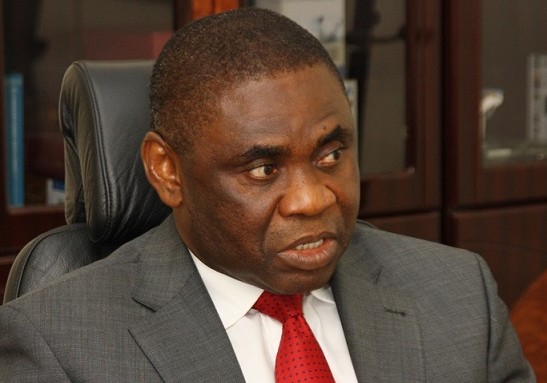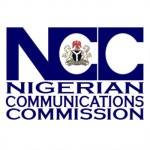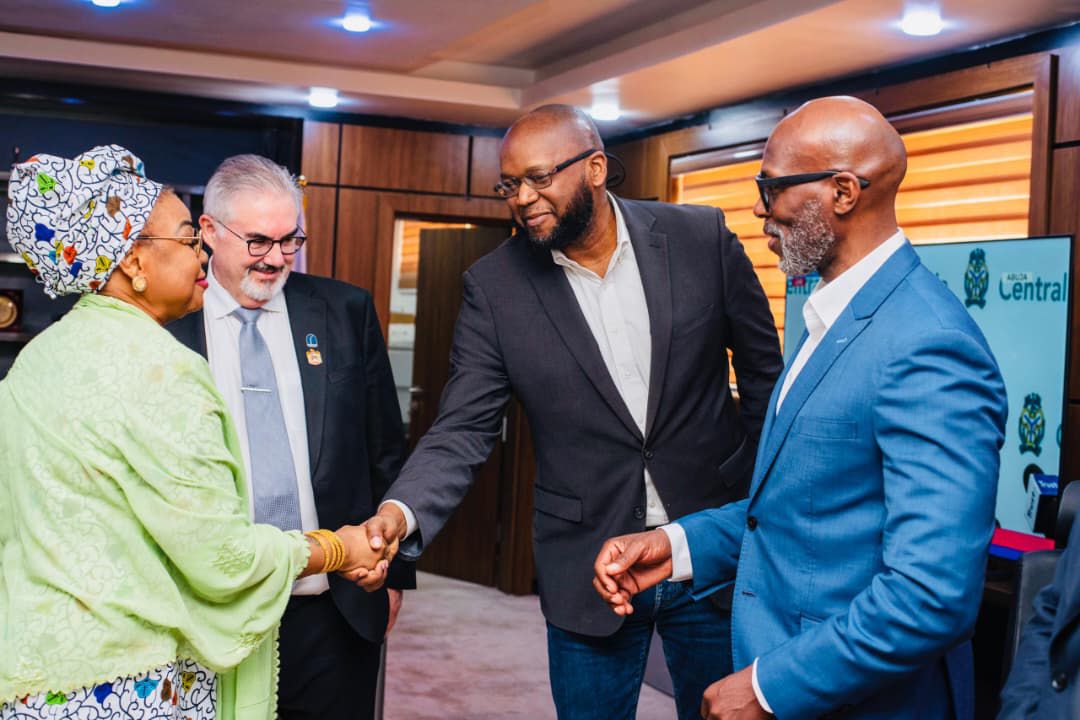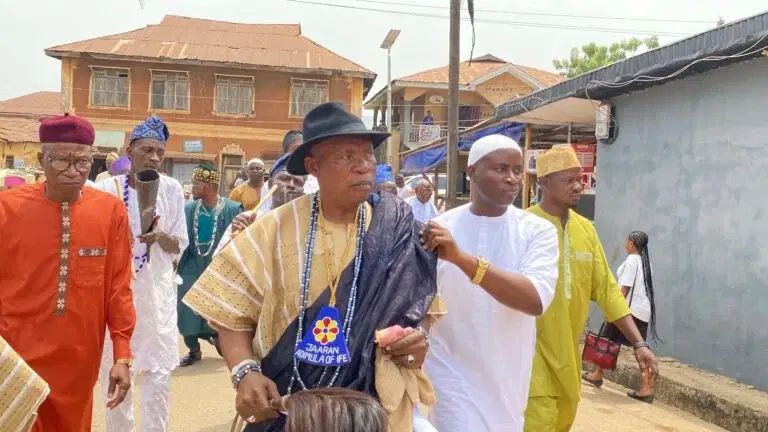It is competition that drives the quality of service -Ojobo

The Director of Public Affairs Nigerian Communications Commission (NCC), Mr Tony Ojobo recently spoke with some journalists in Lagos on secondary market for telecom services, InfracCos, and telecom operator’s bill, among others. Tony Nwakaegho was there for TechTimes. Excerpts:
Some IT experts are advocating for secondary market for telecoms service. Do you think it’s possible?
We’re looking at all of that; we have discussed this at the management level in the commission and a committee is also looking at it. The Director of Spectrum allocation in the commission and his team have been asked to look at all of the issues around secondary spectrum market and then report back to the management in the next meeting after which the commission will take a decision. But then we’re looking at things around the world and also the peculiarity of our market to see whether it’s something desirable. But by the time the Spectrum administration department have finished with their work the management will be looking at all of these a decision will be taken.
What is your comment on 10 per cent service charge on telecoms operators’ bill?
The Bill is not from the NCC. We believe that it is a Bill that has been put before the National Assembly; we will not want to pre-empt the work of the National Assembly so we will allow them to do their work, except if the commission is invited to make any input maybe at the point of public hearing.
People are envisioning that the monopolistic tendency of InfraCos licensing will not be aborted. What is your take on this?
It is also one of the issues being looked at by the commission. At the time that the model was introduced to the commission based on some studies that have been carried out in other parts of the world where the Open Access Model has been used. There is a committee that has been set up to work out the licensing documents for the infraCos. If they discover that there’s a need to maybe tweak that particular model then it might be necessary to do that, but I wouldn’t want to pre-empt the work of that committee. The committee will look at the issue of licensing for the remaining infraCos, if they see there’s a need to open it up to more players then they’ll make that recommendation, but again we also need to look at the market in terms of demand and content, because basically what drives broadband services is content. Content in those regions to allow the number of players we have to remain in the market.
People are still talking about the CDMAs that a good number of them are no longer in the market and even the last on- Visafone has been bought over, so we really need to look at the maturity of the market and also the ability of people to patronise these services. Let’s say you have a lot more players in a particular region will you have enough content to provide enough services that will allow you remain in business? These are also some of the issues that the committee will look at and recommend whether we need additional players in these regions for the infraCos. But of course the aims and objectives of the commission is to make sure that the consumer is satisfied at the end of the day.
Stakeholders in the telecom industry are agitating for more infraCos to be licensed. Why is it that the two infraCos already licenced have not rolled out?
Prof Umar Garba Danbatta Nigerian Communications Commission (NCC) has put together a committee of relevant departments to look at the license that has been issued and also come up with a licensing framework for the remaining five infraCos that are going to be licensed and as you’re aware, those licenses will be for those five regions that presently have not been awarded licenses.
For now we have just done that of Lagos and North Central; Lagos as the commercial capital. The two infraCos have not rolled out because there are still areas where we have to fine tune the license document to ensure that it delivers the kind of value that we expect the infraCos to deliver. We’re just crossing the T’s and dotting the I’s so that by the time they take off they’ll be rolling out services in line with the stringent terms and conditions of the licenses that they’ve been issued.
We expect that the remaining five will be licensed something during the year; we do not have the specific date but the committee will be working on that; finalising the licensing framework for all of these infraCos that will be licensed, specifically it’s going to come before the end of the year.
The 2.6GHz frequency was supposed to be licensed by the commission last year but I think some administrative work that needed to be done were not finalised at that time because the commission wasn’t quite ready, and you’re aware that our auction process is usually very transparent; we consult widely because it’s not only for countries in Nigeria but also for international investors who are interested in playing in this market, so we wanted to make sure that everything was set. So that we can attract the kind of companies that will provide service and add value to what we’re doing.
One of the things that happen in this type of market is that competition is key. It is competition that drives issues of QoS, pricing etc. so if you have the right type of competition in the mix then you’ll be sure that the consumer will be happy for it, that’s the reason we have put together this; working on the licensing document to determine the terms and conditions etc. We have uploaded the information on our website and invited comments from people. When all of that is finally done then that May 16, will be the auction day proper; so all of the processes are on-going now.
The 2.6GHz frequency is very much required for the provision of wireless broadband service. The 2.6GHz is another frequency that is being added to what we have already and what that means is that the winner will have six flaps on that frequency and the successive winner of the bid will possibly be providing wireless broadband services and that in itself will enlarge the broadband space that we have and also have more people have more access to broadband services. With the national license, the winners are expected to rollout nationally.
With the national broadband policy of course you’re aware that we’re looking at 30 per cent broadband penetration by 2018, some people are already of the view that we’re behind schedule in terms of whether we’re going to be able to meet up with the benchmark that has been set; but of course it’s work in progress but the important thing is that as we have the foundation laid now, with the infracos that are already licensed and the five that are coming up additionally and with the 2.6GHz that is going to be licensed in May and then with the 2.3GHz that has the license that we’ll start rolling out. But of course 2018 which is 3 years from now, I’m sure we’ll still be able to meet that 30 per cent and maybe probably surpass it and have a more pervasive broadband services provided.
If what we’re seeing today in e-Commerce, e-Medicine, eLearning etc. is anything to go by, and we’ve just 10 per cent broadband penetration, now you can just imagine what will happen when we have 30 per cent broadband penetration by 2018 and going into 2020. We believe that it’s going to impact very seriously and positively on businesses in Nigeria and of course you are aware of this talk that for every 10 per cent increase in broadband penetration there’s a corresponding 1.3 per cent increase in GDP, so we’re going to see increase in GDP, in other words a lot of small businesses are going to be able to contribute to the economy because of the availability of broadband that will help them in hotels, schools etc. in all the sectors you’re going to see tremendous impact.
Is there any point regulating OTT?
This is a deregulated market, OTT over-the-top is a technology and we do not regulate technology. We believe that the market forces will determine what plays there. We are the regulator, we’re technology neutral. We believe that the market forces determine the dynamics and what people do in the market place, and in all of these the consumer is better for it. Look at LTE for instance, someone doesn’t have airtime on his/her phone and then you get into a hotel where there’s Wi-Fi, he has the opportunity to use that; so how do you regulate or stop that; how do you stop him from utilising the value that is being offered by technology?
What we have done as a commission is that the service providers will have to be creative as well as innovative to be able to stem the tide of disruptive technologies like they’re called, because if you’re providing value to your consumers then they’ll stick; it’s really all about value creation; the kind of value you’re providing for people on your platform and if they have something that can give them better value they’ll of course go there.
We’re part of the global community and at the commission for now, what we have done is that some studies have been carried out to look at what has been done in different parts of the world, but for now what we’re saying is that service providers should be innovative, creative, find ways of adding value to the consumers on their platform so that they can retain their loyalty.










